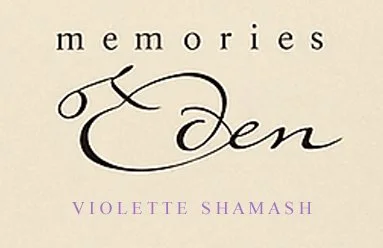They say...
“This is both a fascinating and important book, and I will certainly be referring to it in my new history of the Jews of Arab lands. ”
"I cannot tell you how much I enjoyed Memories of Eden. I have become increasingly fascinated by the life of Jews in Baghdad and by the warm relationships that existed across faiths and communities."
– Rabbi Dame Julia Neuberger (Baroness Neuberger)
“This is family history at its best – evocative, revealing and moving... Violette’s memoirs are not just elegantly written; they have a dreamlike quality which one does not encounter in works of history very often. [The chapters] on the pogrom shed light on a forgotten episode in the history of Jewish suffering. The tale of British troops watching on passively while local extremists are going about their bloody business has an eerily contemporary ring: one cannot help but think of Srebrenica, Rwanda, and – more recently – Darfur.”
"This is an extraordinary, unique and invaluable book. An astonishing record. Violette writes beautifully and her work is superbly readable. [It] is an account of a long forgotten time – indeed, a time which is barely imaginable now, given the hatreds that currently exist in the Middle East. Until World War Two, Jews and Muslims lived side by side, she writes. 'We were treated as equals and accepted on our own merit until the poison of Nazism and Arab nationalism entered the bloodstream. The evil spread like a bad, contagious disease.' It still does so."
– William Shawcross, author and broadcaster
“An inside look at the last decades of Jewish daily life in Baghdad – from Ottoman rule to British influence to the Nazi-allied pogrom known as the Farhud.”
"A unique insight into the culture, customs and everyday life of the Jews of Iraq. It paints a sensitive portrait of an ancient civilisation which was swept away by the violent current of modern nationalism. The contrast between the harmony and peaceful coexistence depicted here and the mayhem and destructiveness of present-day Iraq could hardly be starker."
– Professor Avi Shlaim, St Antony’s College, Oxford
“An enjoyable treasure house of information... It is full of detail: the heat, the holy days, the rituals, food, smells and sounds of the souq; the river Tigris, its water and fish; the costumes and clothes people wore; schooldays and rides on donkey-back before motorised transport became available... These memoirs have only one motive: to leave for posterity a record of the daily lives led by our forefathers. In this they succeed brilliantly, for this is a real testament to a vanished way of life and a language that is also sadly disappearing. ”

